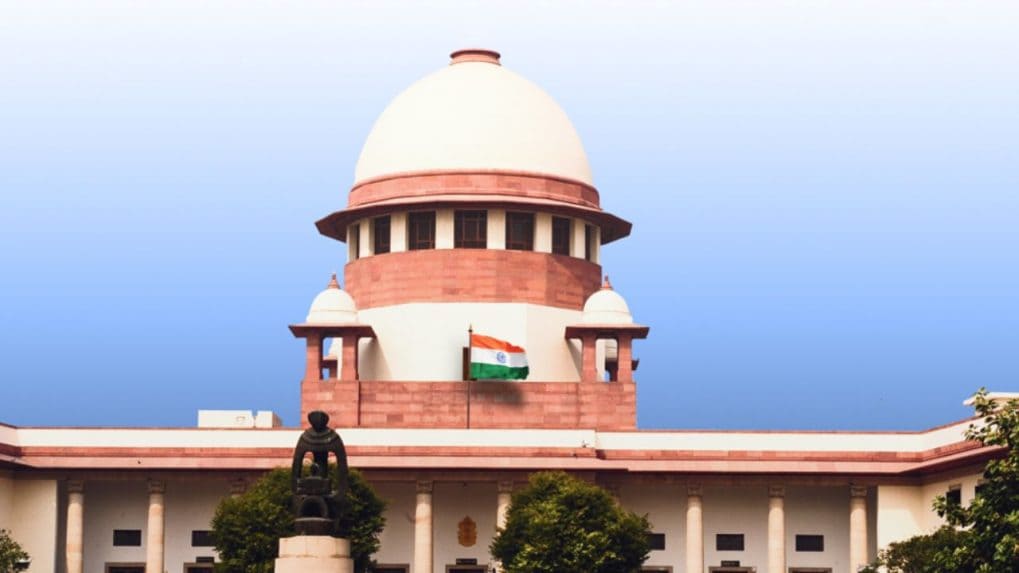Breaking: SC reserves verdict in Rs 2.5 lakh crore GST online gaming case
Senior counsels Arvind Datar, Dr. Abhishek Manu Singhvi, Gopal Sankaranarayanan, Tarun Gulati and C. Aryama Sundaram submitted final rejoinders to the Supreme Court.
ADVERTISEMENT
In what could be a watershed moment for India’s online real money gaming (RMG) industry, the Supreme Court on Tuesday reserved its judgement in a high-stakes case concerning the applicability of Goods and Services Tax (GST) on online games. The verdict is expected to bring clarity to a massive ₹2.5 lakh crore tax dispute, one of the largest in India’s legal history.
A division bench comprising Justices J.B. Pardiwala and R. Mahadevan reserved judgment after concluding arguments in the batch of cases involving leading gaming companies, including Gameskraft, Delta Corp, and members of industry bodies like the All India Gaming Federation (AIGF), E-Gaming Federation (EGF) and the Federation of Indian Fantasy Sports (FIFS).
The government of India will submit a supplementary admissions to the court in two weeks. Justice Pardiwala and Mahadevan thanked all the counsels for assisting the court. Interestingly, the landmark GST gaming case hearing ended on Justice Pardiwala's birthday. The arguments have concluded and the judgement reserved for pronouncement.
Senior counsels Arvind Datar, Dr. Abhishek Manu Singhvi, Gopal Sankaranarayanan, Tarun Gulati, Balbir Singh and C. Aryama Sundaram submitted final rejoinders to the Supreme Court.
In the rejoinder submissions, Sankaranarayanan argued that the constitutional expression “Betting & Gambling” — as interpreted in landmark Supreme Court rulings in the RMDC cases — applies strictly to games of chance, not games of skill. “If the Revenue wishes to include games of skill in that phrase, the RMDC rulings would have to be referred to larger benches,” the note asserts.
It also points out that both RMDC Constitution Bench decisions dealt with tax statutes, undermining the Revenue’s claim that skill gaming jurisprudence has no relevance to taxation. “No judgment has ever said ‘Gaming is nothing but Gambling’ — in fact, K.R. Lakshmanan says the opposite,” the filing states.
The government’s attempt to classify online rummy stakes as “actionable claims” — and therefore taxable as goods — is also attacked. Citing the Transfer of Property Act, the rejoinder explains that money can only be an actionable claim when it is a “debt” and remains unpaid. “Until there is a refusal to pay, there is no actionable claim,” it argues, adding that GST’s own definition of “services” explicitly includes activities relating to the use of money.
The submission agrees that “wagering” contracts include betting and gambling but stresses that such agreements are unenforceable under Section 30 of the Indian Contract Act, except for horse racing. It accuses the Revenue of cherry-picking statutory text to suit its case.
On casinos, the rejoinder points to GST Council discussions and rules 31-B and 31-C, arguing that these were newly introduced in 2023 and make no reference to Rule 31A. “The fact that show cause notices were issued days before these new rules took effect raises doubts about a colourable exercise of power,” it states.
It also dismisses the concept of “House Advantage” — used by the government to value casino bets — as a “notional figure with no legal or factual basis” and denies that casinos match bets in the manner alleged.
The filing concludes by urging the Supreme Court to dismiss the Revenue’s special leave petitions and allow the writ petitions of online skill gaming platforms, effectively quashing the tax demands.
Read More: Tax law blind to crime, gambling triggers GST either way: Govt tells Supreme Court
Read More: Breaking: Govt misled SC, altered GST notice grounds to sustain tax demand: Gaming firms


